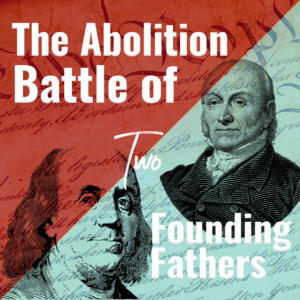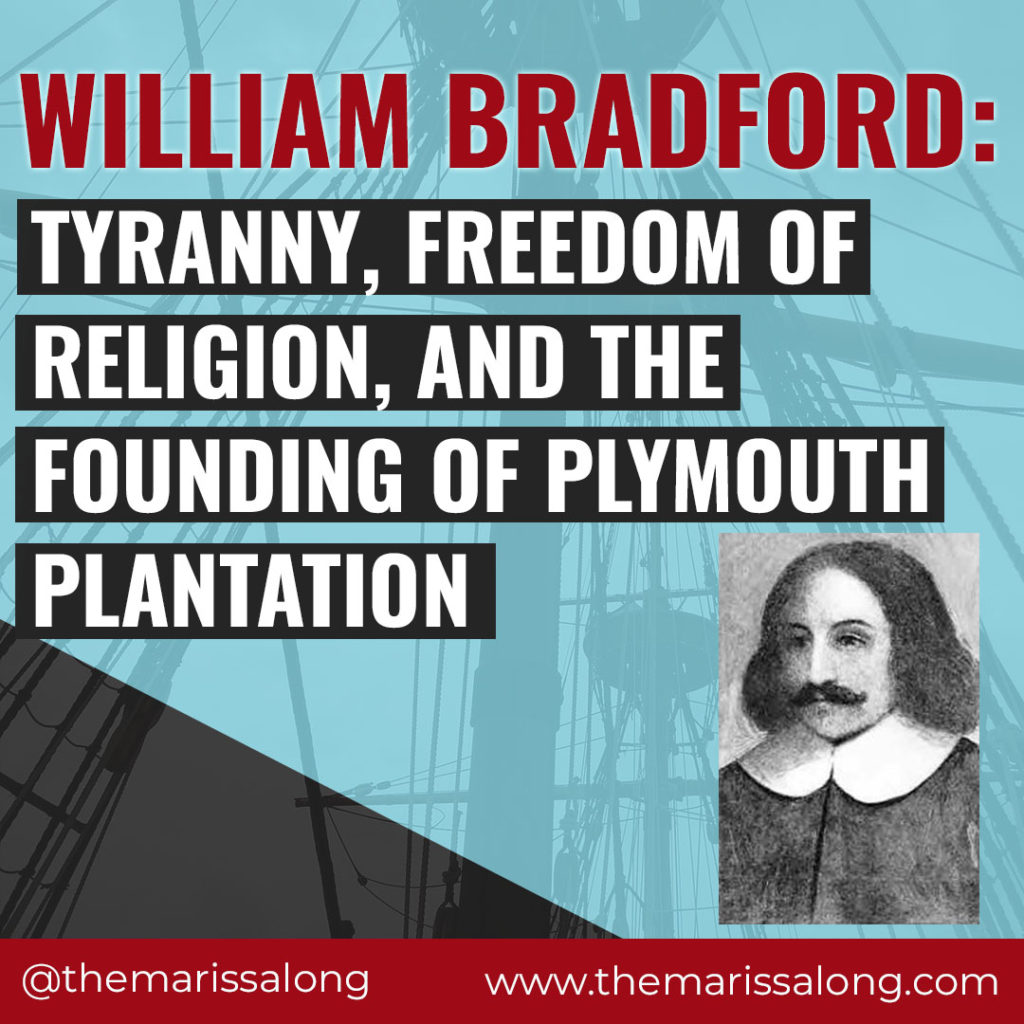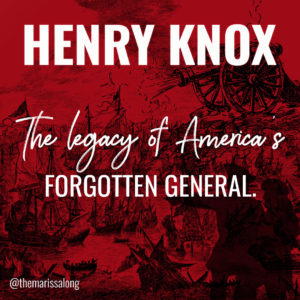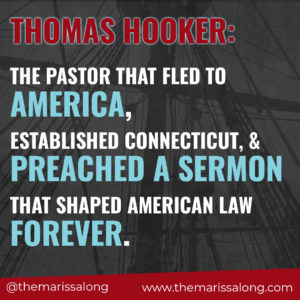William Bradford was a fighter: he fought tyranny, he fought for freedom of religion, he fought through the hardships of founding Plymouth Plantation, and he laid the groundwork for what America became at her founding. William Bradford is a name that a lot of Americans know, but they can’t really tell you who he is or what he did. Well, that’s about to change for you now. William Bradford was born in England, sailed to America with the Pilgrims, and became America’s most popular governor… he was re-elected 30 times! Bradford had a deep faith, was self-educated, knew several languages, and led the charge to found America on a Christian foundation.
William Bradford’s Childhood
William Bradford was born March 19, 1590 to his wealthy parents, William and Alice (Hanson) Bradford, in Austerfield, County Yorkshire, England, a farming community. Both his parents died when he was very young (some sources cite the year he was born). Because of his loss, Bradford was drawn to the Bible and its comfort. He lived near Scrooby, England, and was exposed to the Puritans and separatists. Bradford joined the congregation at 12 years old, against his relatives’ wishes and greatly admired the Puritan’s simple services “and their commitment to both religious and political reforms” (Wall Builders). The Puritans and Separatists rejected the legalistic practices and rituals of the Church of England and focused on adhering to biblical lifestyles.
During Bradford’s teenage years, the world was quickly changing around him. Shakespeare was producing “Anthony and Cleopatra”, and in Viriginia (the New World), Jamestown Colony was founded (AmericanMinute).

Also popular reading: Two Founding Fathers Who Worked To End Slavery
William Bradford and the Puritans
The English Church was corrupt, and the Scrooby church criticized it and the English state. Things came to a head when the English threatened criticizers of the state and church with permanent imprisonment. Without freedom of speech and conscience, the Scrooby church was left with their hands tied and tongues cut. The congregation fled to Amsterdam, Holland, hoping they would have greater freedom there, and they did have freedom for several years.
The church fled in 1608 from England to Holland.
Bradford married his first wife, Dorothy May, on December 10, 1613 in Amsterdam, Holland.
Bradford and Dorothy enjoyed several years of peace in Holland, but once again, their religious freedoms were reduced due to the threat of war with Spain and Holland’s secular beliefs. The congregation knew they needed to flee, and they decided to relocate to America, north of the Virginia Colony “some place about Hudson’s river” where they would loyally serve King James, adhere to English law and customs, but still have freedom of religion and liberty.
The first order of business was finances and administrative duties, and Bradford shouldered most of these duties, including “negotiation for a patent to give legal permission for a settlement, and a swarm of details connected with what he called ‘the weighty voyage’” (Pilgrim Hall).
His notes on the preparations before the voyage and life after the journey were compiled into his memoir Of Plymouth Plantation, which he never publicly published but preserved through his son William and grandson Major John Bradford.
In 1620, when William Bradford was 30 years old, he and Dorothy left their 4 year-old son to take a risk and sail to the New World and start a colony that would have religious freedoms. The journey was very dangerous, but 100 other members of their church joined them in the quest for liberty.
The Mayflower voyage lasted three months before they reached Provincetown (September 1620 to November 1620). Only half of the 102 Pilgrims who landed in Massachusetts that first winter survived to the next year. Sadly, when the Pilgrims reached America’s shores and docked in Provincetown, Dorothy fell overboard the ship and drowned before anyone could rescue her.
Also Read: Henry Knox – America’s Forgotten General
William Bradford and the Mayflower Compact
Despite Bradford’s grief over losing his wife, he remained in leadership. Before the company had landed, the “Strangers” (adventurers, wealth seekers, and non-Puritans in general) threatened that “when they came ashore they would use their own liberty , for none had power to command them” (Pilgrim Hall, Of Plymouth Plantation).
This caused the Puritans and Bradford to realize they needed a law of the land, and Bradford helped draft the Mayflower Compact. The full text is below.
[insert picture of Mayflower Compact?]
“IN THE NAME OF GOD, AMEN. We, whose names are underwritten, the Loyal Subjects of our dread Sovereign Lord King James, by the Grace of God, of Great Britain, France, and Ireland, King, Defender of the Faith, &c. Having undertaken for the Glory of God, and Advancement of the Christian Faith, and the Honour of our King and Country, a Voyage to plant the first Colony in the northern Parts of Virginia; Do by these Presents, solemnly and mutually, in the Presence of God and one another, covenant and combine ourselves together into a civil Body Politick, for our better Ordering and Preservation, and Furtherance of the Ends aforesaid: And by Virtue hereof do enact, constitute, and frame, such just and equal Laws, Ordinances, Acts, Constitutions, and Officers, from time to time, as shall be thought most meet and convenient for the general Good of the Colony; unto which we promise all due Submission and Obedience.
“IN WITNESS whereof we have hereunto subscribed our names at Cape-Cod the eleventh of November, in the Reign of our Sovereign Lord King James, of England, France, and Ireland, the eighteenth, and of Scotland the fifty-fourth, Anno Domini; 1620.” Mayflower Compact.
This founding document was signed by the male members of the company, and Bradford was one of the first to sign it. John Carver was officiated as governor on November 11, 1620, the same day they signed the Mayflower Compact.

Starting Plymouth Plantation
December 25, 1620 marked the day that the company decided to live in Plymouth and began construction of homes and buildings. The winter was very hard on the Pilgrims, and 102 colonists died of “hunger, exposure, or disease” (Wall Builders). Governor John Carver died that winter, and Bradford was elected to replace him as governor. Unknown to him, he would be well-loved, and the Pilgrims would re-elect him as governor 30 times up until his death.
The winter was hard, and they continued to fight for survival into the spring. They had landed at the wrong location, thinking they were further south than they actually were, which meant they had no grant or right of occupation, either from England or from the Native Americans. They were wise in their dealings with the natives, and they did obtain a patent from England for a grant.
In November 1621, Governor Bradford declared a feast of Thanksgiving with their Wampanoag acquaintances to thank God for carrying them through a hard winter and giving them the provisions they needed to recover their health, repair their homes for the second winter, and the bounty of the summer crops. If you know the story of Squanto, this is where he pops into the story.
Learn More About Early Settlers Of America! Read
William Bradford’s Second Marriage and Terms As Governor
As more colonists arrived on other ships, Bradford began to firm up the laws and leadership, and he and his assistants became financial managers, judges, and negotiators with trading posts, disputes, and Native Americans.
In 1623, the ships Anne and Little James arrived bringing women and children, much to the delight of the men in the colony. William Bradford married Alice (Carpenter) Southworth, a young widow with two sons, in August 1623 at Plymouth.
Emmanuel Altham was a ship captain who attended the marriage festivities, and he wrote, “And now to say somewhat of the great cheer we had at the Governor’s marriage. We had about 12 pasty venison, besides others, pieces of roasted venison and other such good cheer in such quantity that I could wish you some of our share. For here we have the best grapes that ever you [saw] and the biggest, and divers sorts of plums and nuts.”
Bradford loved Alice, and the two united their family, including Bradford’s son who was brought from Holland to Plymouth, Alice’s two sons, and the three children born to Alice and William.
William Bradford’s Later Life & Death
Bradford did not receive education from a traditional school, but he was well-educated and had one of the largest libraries in America at the time. He was conversant in many languages (especially Hebrew) and wrote extensively. Bradford also owned a stock of firearms, including three matchcock muskets, a snaphance musket, one fowling piece without a lock, and others.
Bradford died at 67 years old on May 9, 1657, and Alice died March 26, 1670. He died well-loved and remembered by his fellow colonists, and his deep faith drove the colonists on until they started the American Revolution and won their liberty once and for all from the tyranny of England.
Conclusion
Bradford’s journal, Of Plymouth Plantation, provides a glimpse into his life and faith.
“Since ye first breaking out of ye light of ye gospel in our Honorable Nation of England…what wars and oppositions… Satan hath raised… against the Saints … by bloody death and cruel torments … imprisonments, banishments … What could now sustain them but ye spirit of God and His grace? … Ought not the children of these fathers rightly say: Our fathers … came over this great ocean, and were ready to perish in this wilderness; but they cried unto yet Lord, and He heard their voice” (excerpt found on AmericanMinute).


